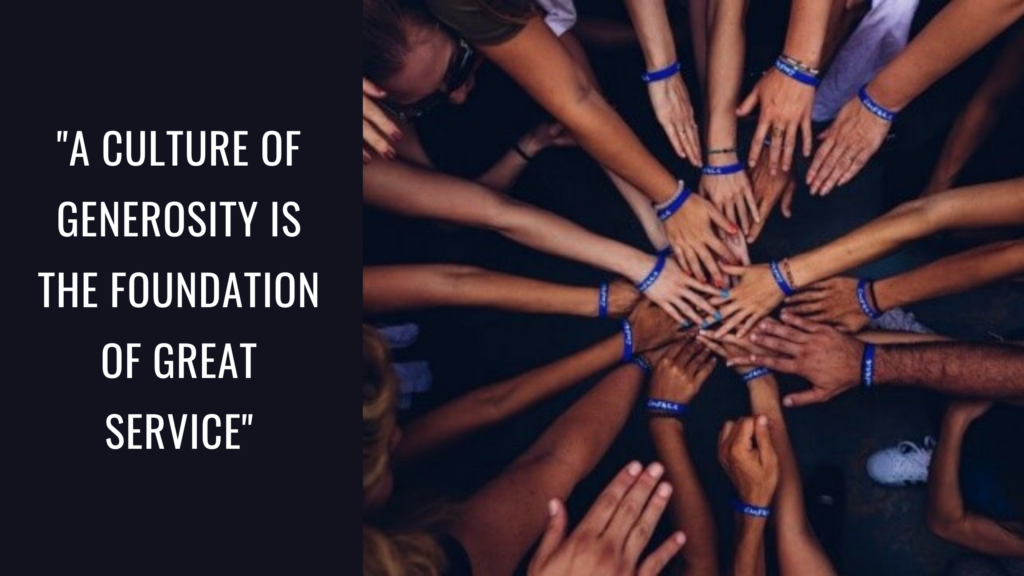As a customer, can you imagine a world where “We Care” is not just a slogan, but is borne out in your everyday shopping experience, with every business? I can. I live, expectantly, in that imagining, with my fingers crossed, hoping that one day it will be reality. In the meantime, I enjoy receiving a hamper or some other promotional token from my neighbourhood supermarket. Just that small gesture makes me feel special. Notwithstanding the fact that many other loyal customers receive the same courtesy, I still feel special.
As we begin to see the light at the end of the lockdown tunnel, it’s a great time for businesses to introduce more humanitarian values that speak to the “We Care” philosophy, into their value systems and to begin living those values. Some values that come to mind are “do unto others as we would have them do unto us” and “charity begins at home.” One of my favourite humanitarian values ever is “Ubuntu” and I’ll say a bit more on this very special philosophy later in this column. I have thought always, that all of these values were created by minds that were focussed on people living and thriving in harmony.
Generosity is a two way value system. It harmonizes the exchange between people and entities. When we apply generosity as a basis for guiding the exchange of value at the nexus of customer and business, we enable the customer experience and the business experience to harmonize. I’m going to get a little existential here, so bear with me. At a deeper level, generosity enables the employee as an individual, the business and the customer, to experience the same level of positive value out of an exchange, with the customer emerging from the exchange with a “glow.” The businesses that release enough generosity to sustain the “customer glow,” will win the “We Care” differentiation game.
So we see that generosity and service are natural companions. When, for starters, a business takes the time to convert “We Care” from a slogan into a bill of rights for its internal customers, the spill over to the external customer becomes a game changer for service differentiation.
 Essentially, it’s widely accepted that a generous culture supports employee success, which in turn, is a catalyst for customer success. How do we recognize a culture of generosity? Corporate Social Responsibility activities aside, generosity shows up as Imbedded acts of kindness that are “normal” to life in a business. Another sign would be when concern for colleagues and team mates who may not be up to their usual level of productivity, progresses to the work of the compromised colleague, being shared by his or her team mates.
Essentially, it’s widely accepted that a generous culture supports employee success, which in turn, is a catalyst for customer success. How do we recognize a culture of generosity? Corporate Social Responsibility activities aside, generosity shows up as Imbedded acts of kindness that are “normal” to life in a business. Another sign would be when concern for colleagues and team mates who may not be up to their usual level of productivity, progresses to the work of the compromised colleague, being shared by his or her team mates.
A third sign can be when team members become mutually accountable for each other’s success, by pulling their weight and conversely, calling each other out, if someone drops the ball for no good reason. When team members become team mates, that’s the ultimate sign of generosity.
I’m sure that all of us have been that customer who has experienced a customer service representative blaming a colleague for a faux pas. As well, we may have been that employee who has witnessed colleagues shaming and throwing each other under the bus. In a culture of generosity, (this is my favourite), there is no shaming or blaming of others publicly. There is the public protection of team mates and the private resolving of issues. There is no wilful behaviour that causes harm to others and neither is there the presence of glee in witnessing another person’s misfortune.
 As a business embraces generosity, some key characteristics begin to stand out on the operations end. Employees begin to accommodate each other’s requests, respond to last minute queries, make listening a habit, serve each other happily and demonstrate a natural tendency to be helpful. Now here’s the booster. “Blessed are the flexible, for they will never be bent out of shape.” A culture of generosity is highly flexible and highly resistant to rigidity. This flexibility will be on show when a customer makes a request that is outside of the typical range of procedure. Employees will auto-reflexively seek out solutions saying; “let me see what I can do” and “I’m sure we can work out an acceptable solution for you.”
As a business embraces generosity, some key characteristics begin to stand out on the operations end. Employees begin to accommodate each other’s requests, respond to last minute queries, make listening a habit, serve each other happily and demonstrate a natural tendency to be helpful. Now here’s the booster. “Blessed are the flexible, for they will never be bent out of shape.” A culture of generosity is highly flexible and highly resistant to rigidity. This flexibility will be on show when a customer makes a request that is outside of the typical range of procedure. Employees will auto-reflexively seek out solutions saying; “let me see what I can do” and “I’m sure we can work out an acceptable solution for you.”
Any business that masters generosity as “standard business behaviour” will be spectacularly on its way to making “We Care” a powerful brand statement that is real to its internal and external customer constituencies. How come? Because “normal” culture behaviour will have begun to turn into “normal” business behaviour.
Now let’s talk about the leaders. When a business sets out to become a culture of generosity, it’s usually because its leaders are “learning leaders.” Learning leaders are obsessed with creating a psychologically safe space for their people to flourish, because they understand that when employees feel unsafe, they withhold enthusiasm and the business suffers. Wherever this safe space does not exist in the business, these leaders take immediate corrective action. I shared some thoughts about this type of leader in a previous column. I’m bringing it up again because I am convinced that in these times, as businesses transform themselves,  both transformational and learning leadership are required competencies for driving the journey.
both transformational and learning leadership are required competencies for driving the journey.
What’s the takeaway here? Ubuntu. Ubuntu is a widely respected philosophy that means “I am because you are.” When translated, it essentially means kindness and generosity. In a world of selfishness, selfless behaviour can be a game changer for great customer experience and service delivery, especially in those cultures where it is allowed to flourish in abundance.
So, as your business makes a small step towards creating a culture of generosity, think of it as a giant step towards becoming your customers’ favourite brand and ultimately, as insurance that will help you to survive in harsh times.

